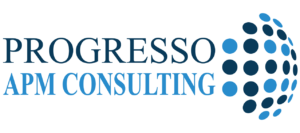Horizon Europe: The most ambitious R&I programme
The month of February hosted a relevant event related to the new financial framework 2021-2027, the launch event of Horizon Europe. Horizon Europe is the framework programme for Research and Innovation, and it can be considered as the most ambitious with respect to the previous R&I programmes.
The event has been hosted by the European Commission and the Portuguese Presidency of the EU Council on the 2 February 2021, however it has to be considered just as a symbolic launch of the programme since the Council and the Parliament of the EU have not adopted the legal acts yet. The event brought together representatives of the European institutions and a large number of stakeholders from the R&I world. The speeches focused mostly on the synergies between Horizon Europe and the National Recovery and resilience plans, as well as on the relaunch of the European Research Area (ERA).
The political agreement on Horizon Europe has been reached on the 11 December 2020 and on this basis the European Parliament and the Council of the EU have been enabled to proceed towards the adoption of the legal acts. The first Horizon Europe Strategic Plan (2021-2024) is expected to be adopted by the end of this month, while the first work programmes are expected to be published by April 2021, after which the first calls will open.
The current version of the strategic plan 2021-24 is in line with the EU’s four Key Strategic Orientations and with the impact areas, along with the list of co-planned and co-financed missions and partnerships. The document also contains attachments about individual clusters and more in detail about the expected impacts and partnerships for each Cluster. The final draft of the plan, subject to the consultation of the Inter-Service commission, must be “politically” supported by The Shadow Programme Committee, while the subsequent official adoption of the document can only take place after the final approval of the Legislative Texts by the European executive.
Definition work on the working programmes 2021- 22 from the thematic configurations of the Shadow Programme Committee has also moved to the final phase (as soon as the Legislative Texts are approved, the programme committee and the relevant configurations will no longer be considered as “Shadow” and will be formalised). The working programmes 2021-22 of Horizon Europe are currently scheduled for the end of February in the Commission’s Agenda, the final move to the program Committee is scheduled for the second half of March, while the formal adoption and the opening of Calls for Proposals are scheduled for the second half of April (however, the European executive keeps open the hypothesis of an unofficial pre-release of the documents a few weeks before the official adoption). The Horizon topics which are not part of the main work programme (including ERC and EIC) could see the opening of their calls already at the end of March.
The five “mission areas” identified in the legislative text, and again in the final draft of the strategic plan (climate change, cancer, oceans and clean water, smart cities, healthy soils and food), have entered a preparatory phase of twelve months, during which detailed implementation plans and its objectives, the budget, indicators and investment strategies will have to be defined. This phase will be accompanied by preparatory actions (different for each mission and not yet fully defined) that will be contained in the 2021-22 work programme and will finally set the foundations for the launch of the actual missions. The Commission has, therefore, partially put aside – at least for the moment -the Mission boards’ work, which presented their final reports, with detailed proposals for specific missions, during the R&I days in September.
In addition to the missions, the strategic plan draft defines the overall portfolio of the 49 partnerships. Only the co-planned and co-financed partnerships (29 in total) are explicitly mentioned in the document: the relevant calls will already be included in the first two-year work programmes. Institutionalised partnerships, whose legal basis lies in articles 185 and 187 of the TFEU, will instead have to be established through devoted legislative acts. Nine Joint Undertakings (Article 187) will be activated by means of a single regulation, which the Commission will have to present by March with the aim of aligning and simplifying the operating procedures (a new partnership on metrology, based on Article 185, will also be part of the package). The EU executive aims at completing the legislative process and at adopting institutionalised partnerships by 2021, with the first calls expected to be published at the beginning of 2022.
Informal talks for the association of third countries have also started – the political agreement on Horizon Europe’s legislative texts and the general agreement with the United Kingdom on Brexit have finally unlocked the start of informal exploration talks with third countries interested in finalising the association agreement for Horizon Europe. So far, discussions have mostly concerned countries already associated with Horizon 2020, including Tunisia, Georgia, Ukraine, Israel, Moldova, Armenia and the Far East. The exploratory phase of the negotiations, which aims at opening discussions on technical issues before the start of formal political talks, will intensify in the upcoming weeks. Political meetings should follow between March and April: The Commission hopes to finalise most of the association agreements before summer.

